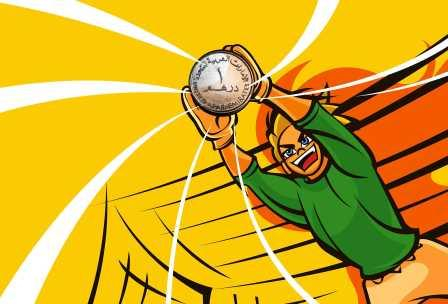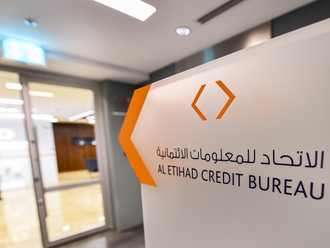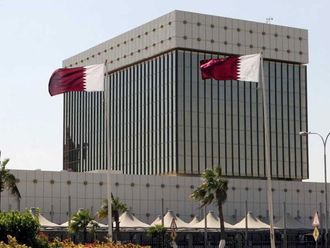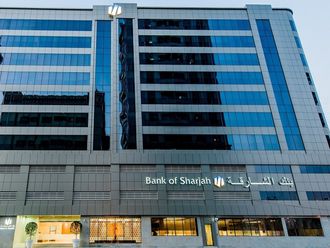
If you think buying everything on a credit card will get you privileged seats at this Fifa World Cup, you may be right. With many credit cards in the market offering special incentives around the biggest sporting event of this year, there are many opportunities to score. However, the situation gets messy if you start accumulating more than you can afford on your cards — you may score an own goal if you have more debts than you can manage.
Debt management is a growing problem in the UAE. A survey by Compareit4me.com last year showed how more than half of UAE respondents have nearly maxed out their limits, 42 per cent don’t pay more than the minimum repayment each month and nearly one-third have more than three credit cards. One in five of those surveyed admitted to making a loan repayment using a credit card. In 2013, the average US household had $15,270 (Dh56,086) — nearly one-third of the country’s annual median household income — in credit card debt, according to NerdWallet, a price comparison website for financial products. Similar figures are not available for the UAE, but last year research firm Strategic Analysis revealed consumer debt in the UAE had reached an average $95,000 per household — suggesting households in the country have trouble staying within their budgets. A third of all people surveyed were found to have three or more credit cards — a key factor in accumulating debt.
Fixing credit-card debt can be as easy as tuning in for the game. To help you avoid a red card, GN Focus offers a few basic debt management tips.
Brush up your goalkeeping skills
With any credit card, paying by the due date is crucial. Doing so avoids late payment penalties and interest charges. Respecting deadlines also keeps your credit score high so that banks may consider future loan applications favourably.
"Missing a payment could have a knock-on effect for future applications such as credit cards and mortgages. Those applying for a credit card need to prove they can make regular and stable payments and any black marks against a credit profile would hinder chances of being approved," Kevin Mountford, Head of Banking at MoneySuperMarket, a British price comparison website, explained in a media statement. While there are no universal credit scores in the UAE just yet, individual banks do maintain a record of consumers’ credit profile. Having a mobile on contract and paying it in full and on time with a direct debit can have a positive impact on such a credit profile, the website advises.
Don’t keep too many cards on the bench
If you like to keep a spare card for emergencies, remember that even a few dirhams left on it after paying the bill could accrue big bills over time. Avoid holding more than one spare card. Not only do they tempt even the most disciplined person to go beyond their means, they also accumulate unnecessary membership fees and leave you open to identity theft and unwanted bills. Having many different cards may also harm your credit reputation. It is therefore important to close any accounts you no longer use.
Take a shot at a transfer
Struggling under the burden of too much debt? Consider taking out a personal loan. Credit cards hold higher interest rates than other loans, and pooling all your outstandings into one low-interest loan will help you make repayments more easily. "The ideal solution here is a loan with a low interest rate and affordable monthly payment that you can use to pay off other high-rate debt," Gerri Detweiler, Personal Finance Expert and Director of Consumer Education at Credit.com, writes on her blog. With extremely high outstandings, she says, "If you can get a personal loan with a lower rate and a repayment schedule that will allow you to pay off the loan in three to five years, this can be an excellent option."
Keepy-uppys can do
the job
Another option is an easy payment plan if your bank offers the service. In this case, high-value purchases can be staggered over three
to 12 months, often at zero per cent interest.
Banks such as Emirates NBD, Samba and ADCB all offer the service. James M., an Indian media professional in Dubai, reveals how after he had made a payment of over Dh8,000, he received an SMS from Citibank informing him of such a facility. "Through online banking I was able to change the payment to an instalment plan over three months," he says. "I’ll now be able to pay it off without too much stress."
Plan your formation
If the financial crisis has had any benefit, it is that consumers are better aware of the need for money management. When Fidelity Investments began surveying consumers about their new year’s resolutions in 2009, just 35 per cent of Americans pledged to be smarter with their finances. For 2014, 54 per cent said they made money resolutions, says Ken Hevert, Vice-President for Retirement Products. However, there are apps that can help keep track of spending and budgeting. Manilla helps you see what’s due when, Level Money helps you stay within your means, while Check offers real-time alerts about bills due. Mint.com offers easy-to-use personal finance calculators.
When developing a budget, Jane E. McNamara, President and CEO of GreenPath Debt Solutions, a US-based NGO providing financial literacy, advises starting with mandatory bills such as rent, mortgage, car, utilities, insurance and medical payments. List food and gas at the minimal amount, which means combining trips in the car and limited eating out, she writes on Creditcards.com. When you know what needs to be spent on those items, you will have a better idea of how much you have left to pay credit-card bills. If you are still short of what you need for minimum payments, try to cut expenses elsewhere. Alternatively, look for ways to temporarily boost your income, the debt counsellor says.












